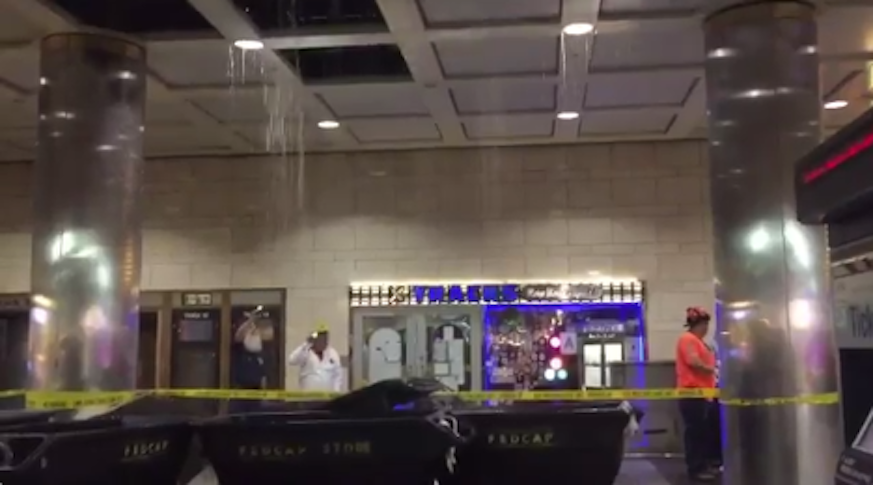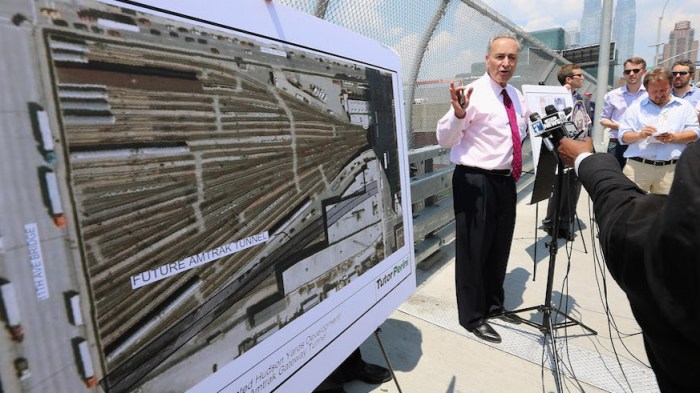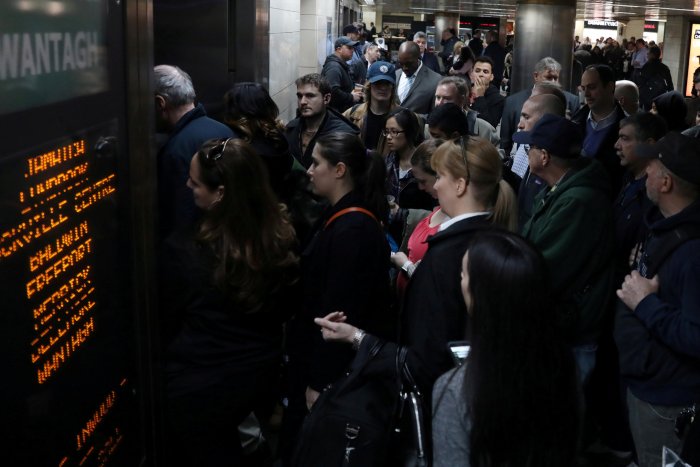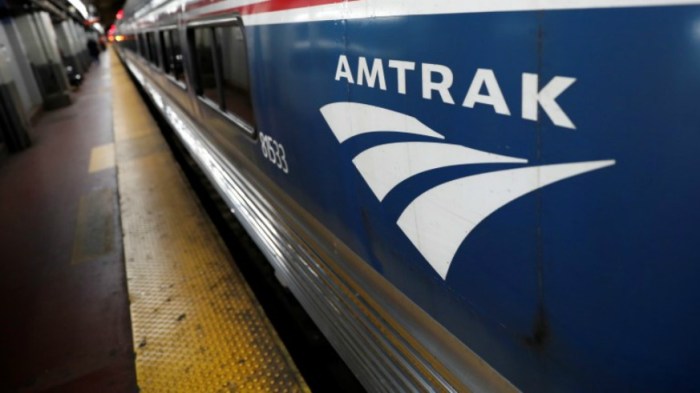It wasn’t the train service that stunk at Penn Station during Wednesday morning’s commute — a pipe burst, sending a deluge of sewage down on the Long Island Rail Road concourse.
As passers-by snapped photos and videos of the scene for social media, workers were busy mopping and setting up dumpsters and trash bins to catch the sewage water that was flooding near tracks 18 and 19.
As commuter Daniel Schutzsmith put it when posting a video to Twitter at 9:45 a.m., “That don’t smell like rain water!”
That don’t smell like rain water!!! #nyc #pennstation #leakyceiling pic.twitter.com/FB4KG1JWEp
— Daniel Schutzsmith ✊ (@schutzsmith) May 3, 2017
An MTA spokesman confirmed the sewage water leak with NBC 4 on Wednesday morning.
Despite the flood of sewage, service along the Long Island Rail Road was not impacted, according to the MTA.
Penn Station is owned and operated by Amtrak. The MTA, New Jersey Transit and Long Island Rail Road all operate out of Penn Station.
. @Gothamist pretty sure penn station is raining sewage rn. pic.twitter.com/uvwn6DZ4EB
— Kari Szul (@kariszul) May 3, 2017
The leak continued throughout the entire morning and into the midafternoon. The leak was “under control” by 3 p.m., a spokesperson for Vornado Realty Trust told NBC 4.
Commuters at Penn Station have dealt with their fair share of problems lately. From train derailments to long rush-hour delays and the occasional panicked stampede, commuters can’t seem to catch a break.
“We deserve better!” one train rider wrote on Twitter, jokingly describing the sewage cascading from ceiling tiles as a “new water feature” inside Penn Station.
New water feature inside #pennstation? This place is the worst. #LIRR #Amtrak #NJTransit #wedeservebetter @LIRRoutrage @LIRR pic.twitter.com/6fuvXk33jT
— Terra Mrkulic (@TerraIncognita) May 3, 2017
But Penn Station commuters are far from out of the mud, so to speak. This summer, Amtrak plans to make long-overdue repairs, which will strand some commuters.
Following two derailments at Penn Station this spring and continuing delays and cancellations along all four railways and even a stampede, Amtrak announced plans to shut down some of Penn Station’s 21 tracks this summer for extended periods of time.
In exchange for service disruptions, Amtrak said commuters will get accelerated long-term repairs.
Commuters should expect two to three significant disruptions over the summer that could impact as many as 250,000 commuters, but Amtrak said all work would be completed by Labor Day.



















